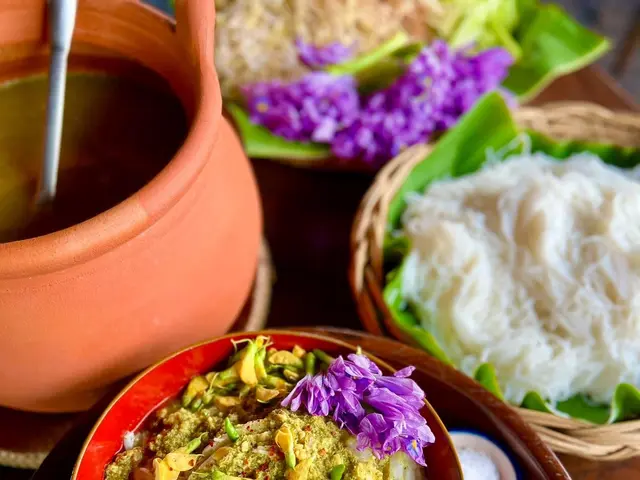Bát Tràng’s Culinary Legacy Honored in First-Ever Heritage Contest
Bát Tràng, a village in northern Việt Nam, has gained recognition for its pottery tradition and culinary heritage. The village's culinary richness stems from its broader cultural identity as a scholarly village with historical trade connections. This year, Bát Tràng held its first Traditional Culinary Contest to celebrate its gastronomic heritage, which was recently recognised as a National Intangible Cultural Heritage.
Bát Tràng's culinary tradition is deeply rooted in its community, with cooking being a communal craft passed down through generations of women. Hà Thị Vinh and Hà Thị Linh, prominent figures in the village's culinary tradition, represent the older generation of cooks. Despite the lack of information about Hà Thị Linh's birth year, their influence is undeniable.
The village's extensive culinary repertoire includes dishes like bamboo shoot and dried squid soup, stir-fried kohlrabi with dried squid, and pigeon spring rolls. These dishes require skill, precision, and local ingredients such as vầu bamboo shoots from Tuyên Quang and female dried squid from Thanh Hóa. Younger generations, like Phạm Thị Thu Hoài, continue this tradition, learning from family kitchens and village gatherings.
Bát Tràng's culinary tradition, shaped by its scholarly past and trade connections, has earned national recognition. The first Traditional Bát Tràng Culinary Contest celebrated this heritage, ensuring that the skill and precision of its cooks, like Hà Thị Vinh and Hà Thị Linh, continue to flourish in the hands of the next generation.







